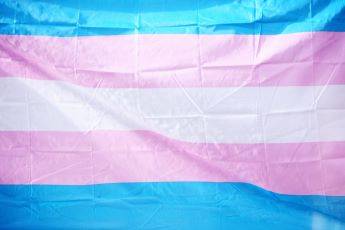Law Commission calls for submissions on review of transgender and non-binary human rights
Thu 08 Aug 2024
The Law Commission is asking for feedback on their review of the protections in the Human Rights Act 1993 for people who are transgender, people who are non-binary and people with innate variations of sex characteristics.

Law Commission calls for submissions on Ia Tangata review
Te Aka Matua o te Ture Law Commission is consulting on their Issues Paper Ia Tangata – A review of the protections in the Human Rights Act 1993 for people who are transgender, people who are non-binary and people who have an innate variation of sex characteristics (NZLC IP53, 2024).
Submissions are due by 5 September 2024.
The Human Rights Act currently does not explicitly prohibit discrimination on the grounds of being transgender, non-binary or having an innate variation of sex characteristics. The Law Commission's Ia Tangata review is looking at whether the Human Rights Act is currently adequate or could be improved for protecting people who are transgender, non-binary or who have innate variation of sex characteristics.
As part of the review, the Law Commission has published an Issues Paper. The paper has background about the review, possible options for reform and questions to give feedback on.
There are 80 questions, but you do not need to answer all questions.
If you are unsure where your comment fits, the final question (question 80, at the end of the Chapters 16-18 section) asks: "Are there any other issues relevant to this review or options for reform that we have not identified or anything else you would like to tell us?"
The other questions each relate to a specific chapter of the Issues Paper, which you are encouraged to read before answering. Some questions are broad, for example, asking for feedback on a chapter or issue. And some questions are detailed, specific and technical.
Chapters 1 to 7 gives an overview of the concepts and issues. This includes discrimination experienced by people who are transgender, non-binary or who have innate variation of sex characteristics, and considerations, context and options and issues for reform.
Chapters 8-15 focus on Part 2 of the Human Rights Act—the ‘areas of life’ that are covered by the Act and their exceptions. Most of the consultation questions relate to these chapters.
Chapter 16 discusses the Bill of Rights Act.
Chapter 17 discusses three ‘cross-cutting’ issues and their implications:
- impacts on the ability of Māori to live in accordance with tikanga
- misgendering and deadnaming, and
- examples of binary language in the Human Rights Act.
Chapter 18 discusses:
- The membership, powers and functions of Te Kāhui Tika Tangata | Human Rights Commission (Part 1 of the Human Rights Act), and
- Resolution of disputes (Parts 3 and 4 of the Human Rights Act.
Submissions can be submitted through an online form. You can find more information and sign up for email updates about the Ia Tangata review on the Law Commission website. For questions contact the Law Commission on sgd@lawcom.govt.nz.
Background
Following initiatives and public consultations across multiple agencies, Te Aka Matua o te Ture Law Commission was directed to review legislative protections and responses to incitement of hatred and discrimination. The Ia Tangata review is the first part of that mahi. For more information about this history see our previous news story on legislation related to hate crime and new work for Law Commission.
Resources and information to support submissions
Rainbow Support Collective have posted a brief guide to support submissions.
Below we highlight Aotearoa reports, research and resources that might help when writing a submission:
Background and history on human rights protections in Aotearoa for transgender and non-binary people:
- Trans rights are human rights: a guide to your rights and protections as a transgender person (2024) from Te Kāhui Tika Tangata Human Rights Commission
- Ia tangata: Law Commission reviews the Human Rights Act blog post (2023) from Gender Minorities Aotearoa
- Prism: Human rights issues relating to sexual orientation, gender identity and expression, and sex characteristics (SOGIESC) in Aotearoa New Zealand - A report with recommendations (2020) from Te Kāhui Tika Tangata Human Rights Commission
- Discrimination and Trans People: The Abandoned Proposal to Amend the Human Rights Act 1993 (2007) by Elisabeth McDonald
- Adding gender to the Human Rights Act – what’s the big deal? (2024) article by Paul Thistoll, CEO of Countering Hate Speech Aotearoa, published in The Spinoff
- Interview with Paul Thistoll and Prudence Walker on Expanding Hate Speech Laws to Protect the LGBTQ+ community (2024) with b95FM.
Research about transgender and non-binary people's experiences:
- Counting Ourselves: the health and wellbeing of trans and non-binary people in Aotearoa New Zealand (2019) - the first comprehensive national survey on transgender health and wellbeing in Aotearoa
- “It’s how the world around you treats you for being trans”: Mental health and wellbeing of transgender people in Aotearoa New Zealand (2021) article from the Countering Ourselves research team.
Research about transgender and non-binary people's experiences related to violence and hate crimes:
- ARC transgender community report: seeking help for sexual or family violence (2022) by Anti-Violence Resource Centre
- Make it about us: Victim-survivors’ recommendations for building a safer police response to intimate partner violence, family violence and sexual violence in Aotearoa New Zealand (2024) by The Backbone Collective and Hohou Te Rongo Kahukura
- Transforming women-only spaces: law, policies and realities of trans inclusion in women-only safe houses in Aotearoa New Zealand (2022) by Phoebe Moir in Issue 6 of the New Zealand Women's Law Journal - Te Aho Kawe Kaupapa Ture a ngā Wāhine (see pages 43 - 69, also see Phoebe Moir's full thesis published 2021 on this topic)
- ARC Readiness Assessment: transgender and intersex competency in violence prevention services (2022) by Anti-Violence Resource Centre
- Transgressive transmissions: transphobia, community building, bridging, and bonding within Aotearoa New Zealand’s disinformation ecologies (2023) from The Disinformation Project.
For more information on the global anti-feminist and anti-LGBTQI+ trend see the following:
- Facing the backlash: what is fuelling anti-feminist and anti-democratic forces? (2023) from ALIGN, a digital platform and programme of work focused on creating a global community of researchers, practitioners and thought leaders, all committed to gender justice and equality.
- The International Anti-Gender Movement: Understanding the Rise of Anti-Gender Discourses in the Context of Development, Human Rights and Social Protection (2023) prepared for the United Nations Research Institute for Social Development.
Related news
The second phase of the Law Commission's work to review protections and legal responses related to incitement of hatred and discrimination will look at legal responses to hate crime. According to the Law Commission's Hate Crime project overview:
"The review will focus on whether the law should be changed to create standalone hate crime offences as recommended in recommendation 39 of the Report of the Royal Commission of Inquiry into the terrorist attack on Christchurch masjidain on 15 March 2019.
This project will not consider the law relating to hate speech. A review of hate speech was on the Law Commission’s work programme but has been withdrawn by the Minister Responsible for the Law Commission."
The Law Commission is currently undertaking preliminary research for this project and will publish Terms of Reference once confirmed.
In August 2024, Judith Collins, Minister for the Government’s Response to the Royal Commission’s Report into the Terrorist Attack on the Christchurch Mosques, announced that the Government has concluded the coordinated cross-government response. Of the Royal Commission report recommendations, 36 have been implemented and 8 will not be progressing. Find information on the progress and decisions for all 44 recommendations in the Department of the Prime Minister and Cabinet | Te Tari o Te Pirimia Me Te Komiti Matua summary March 15 Royal Commission of Inquiry Recommendations Implementation Status.
Related media
Why women need to stand up for trans rights, The Post, 19.06.2024
Violent transphobic rhetoric on rise online - report, RNZ, 05.05.2023
Image: The Gender Spectrum Collection (https://genderspectrum.vice.com/)







